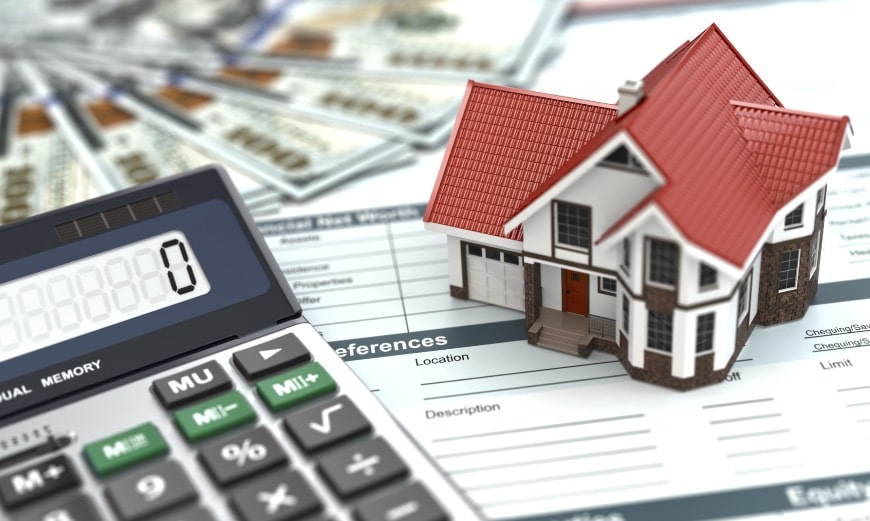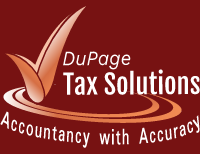
Tax and Accounting Services
About DuPage Tax Solutions
DuPage Tax Solutions is located in Naperville, IL. Our clients are mostly residents and small businesses within the Chicago metropolitan area – DuPage, Cook, Will, and Lake counties. Our remote work capabilities allowed us to extend our services nationwide. Today, we pride ourselves in having clients from all 50 states. Our virtual services are fast, easy, and convenient. Clients submit and review documents electronically through our secured online portal.
Rental Deductions: What are the Rules?

Rental deductions are crucial for maximizing your bottom line as a rental property owner. In fact, with the right knowledge, you can take advantage of various rental deductions to lower your taxable income. In this guide, we will delve into what qualifies as a rental deduction, examine common rental expenses, and highlight key IRS safe harbors that can streamline the deduction process.
Home » Rental Deductions: What are the Rules?
What are rental deductions?
Rental deductions are expenses that landlords incur while managing and maintaining their rental properties. These deductions help reduce taxable income, ultimately lowering tax liability.
Common rental expenses
These are the common expenses that landlords incur while managing a rental property.
- Mortgage interest: You can find this amount on Form 1098 that the mortgage lender sends you.
- Property taxes: The limit for property tax deductions on personal homes is $10,000. However, this limit does not apply to business activities.
- Insurance premiums: They include fire, theft, and flood insurance, plus landlord liability insurance.
- Homeowners Association (HOA) fees: Many rental properties are managed by an HOA, which enforces rules and maintains amenities. If you own a rental property within an HOA, you usually pay monthly fees to the organization.
- Repairs: These expenses are to keep the property operational and do not add value like improvements (explanation later). Examples of repairs are fixing a broken faucet, painting walls, and repairing a roof leak.
- Maintenance: This includes activities that are for ongoing upkeep of your property, such as landscaping and pool cleaning
- Utilities: Water, gas, and electricity are included in utilities.
Generally, these expenses are deductible in the year you incur them and can significantly reduce your taxable rental income.
What are rental improvements?
Improvements enhance the value of the property or extend its useful life. Common examples are:
- Adding a new room
- Upgrading the heating system
- Installing new flooring
While most rental expenses can be immediately deducted, improvement costs must be depreciated over the property’s useful life, typically 27.5 years for residential rental properties. However, there are safe harbors in place that can allow immediate deduction of improvements.

IRS Safe Harbors for rental properties
Small Taxpayer Safe Harbor for rental properties
If your rental property has an unadjusted basis of $1 million or less and your annual gross receipts are $10 million or less, you can deduct expenses for repairs, maintenance, and improvements immediately if they do not exceed the lesser of $10,000 or 2% of your property’s unadjusted basis.
Routine Maintenance Safe Harbor
If you plan to perform maintenance activities more than once over a 10-year period, you can deduct these costs immediately. This applies to tasks like:
- Repainting
- Regular cleaning
- Replacing parts
de minimis safe harbor for rental properties
For items costing up to $2,500 ($5,000 with applicable financial statements), you can deduct them immediately, regardless of whether they are classified as repairs or improvements.
Keeping Good Records of rental expenses
To ensure you can take full advantage of these deductions, it’s essential to keep thorough records. In particular, maintain receipts, invoices, and documentation for all expenses related to your rental property. This not only helps during tax season but also provides support in case of an audit.
Unlocking Your Tax Savings Potential
In summary, understanding rental deductions is a powerful way to maximize your tax savings as a landlord. Particularly, having in mind common rental expenses and the IRS safe harbors and maintaining meticulous records can enable you to navigate the deduction landscape with confidence. Consider consulting DuPage Tax Solutions to ensure you’re making the most of your rental property investments.
You May Also Like These


House Hacking: What It Could Do for You

Should I buy a property now?

Business Structures for Rental Properties
Ready to Take Control of Your Finances?
Contact us today for personalized tax, accounting, and advisory services tailored to your needs. Let’s work together to achieve your financial goals!

Contact Info
Ph. (630) 909 9700
Email: DPTax@DP-Tax.com
Mail address:
1552 Illinois Rte 59 #1037
Naperville, IL 60564
Business Hours
Mon: 11 am – 7 pm
Tue: 11 am – 7 pm
Wed: 11 am – 7 pm
Thu: 11 am – 7 pm
Fri: 11 am – 7 pm
Sat: 12 pm – 5 pm
Sun: CLOSED
Helpful Links
© 2024 DuPage Tax Solutions | Site Map | Privacy Policy | Disclaimer
